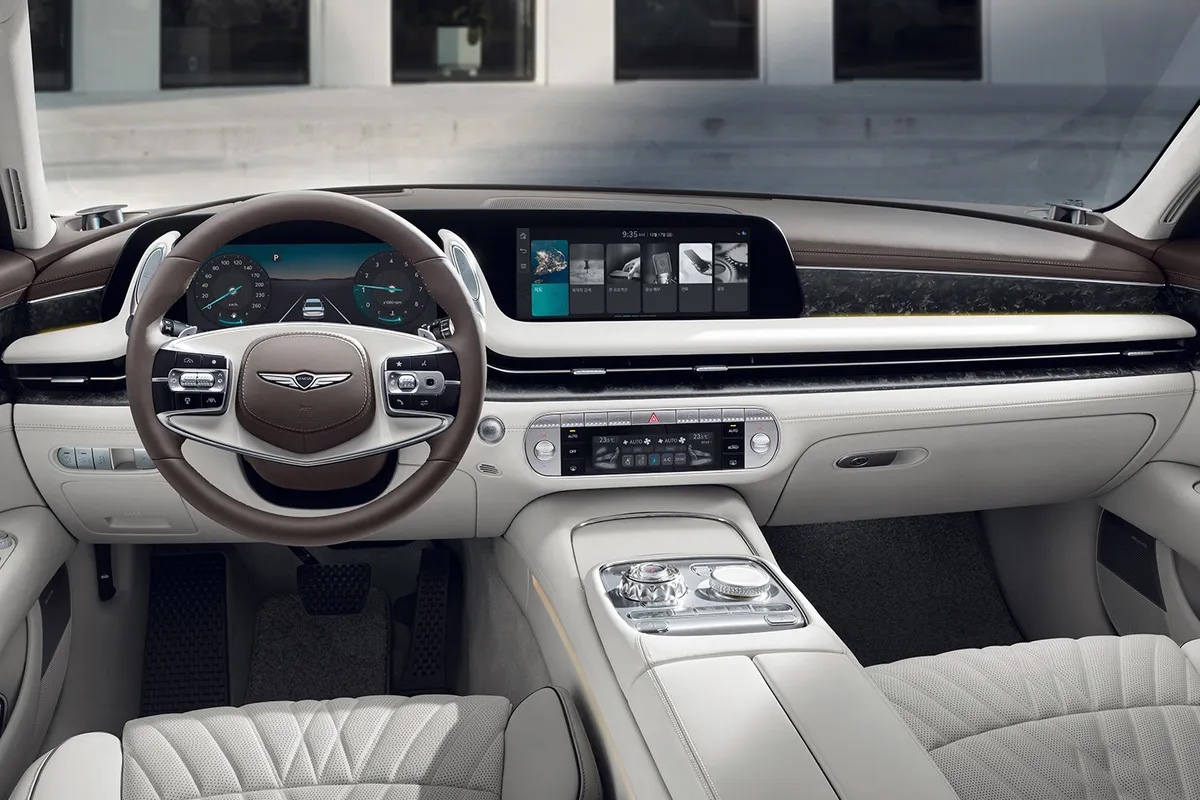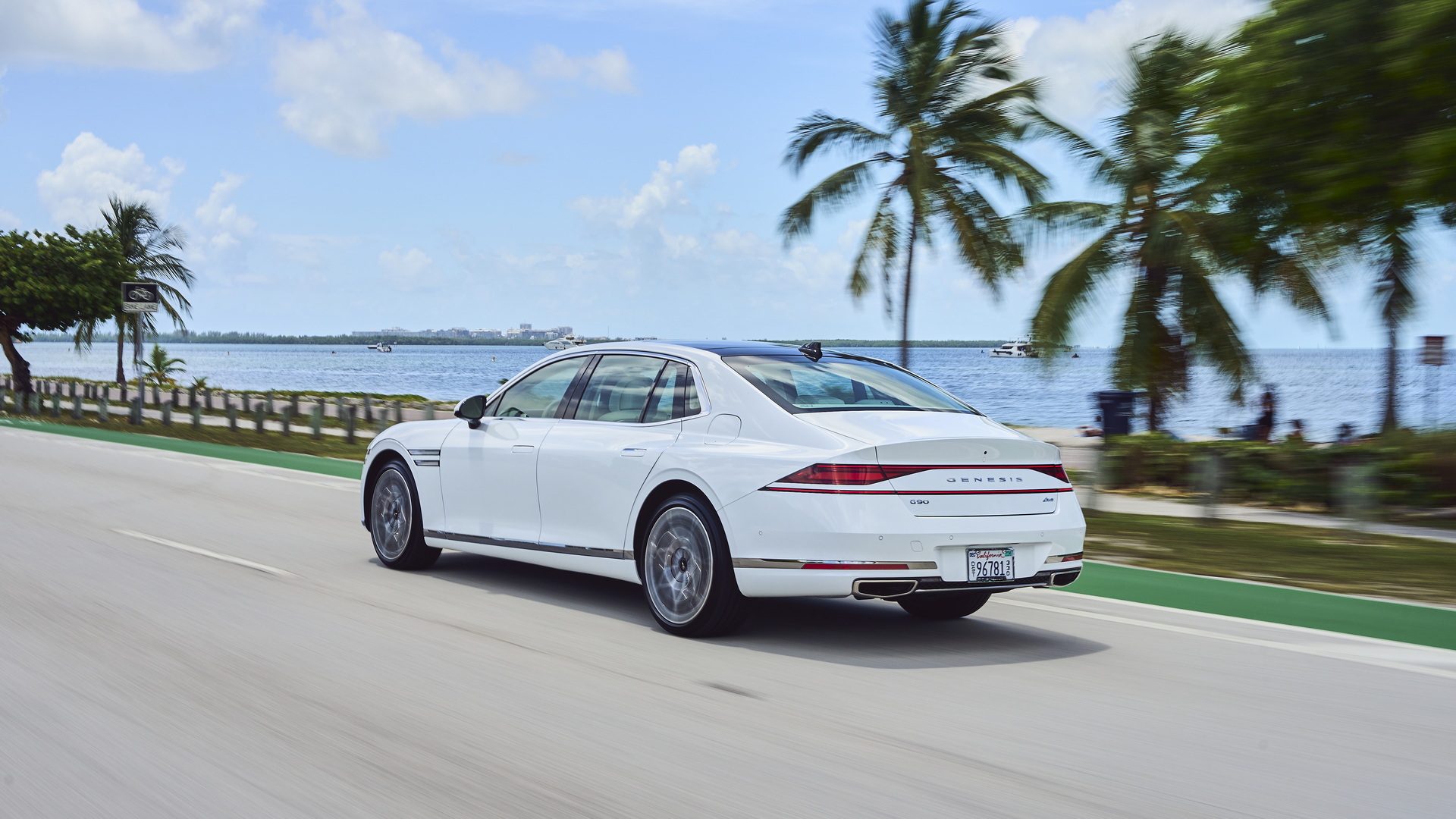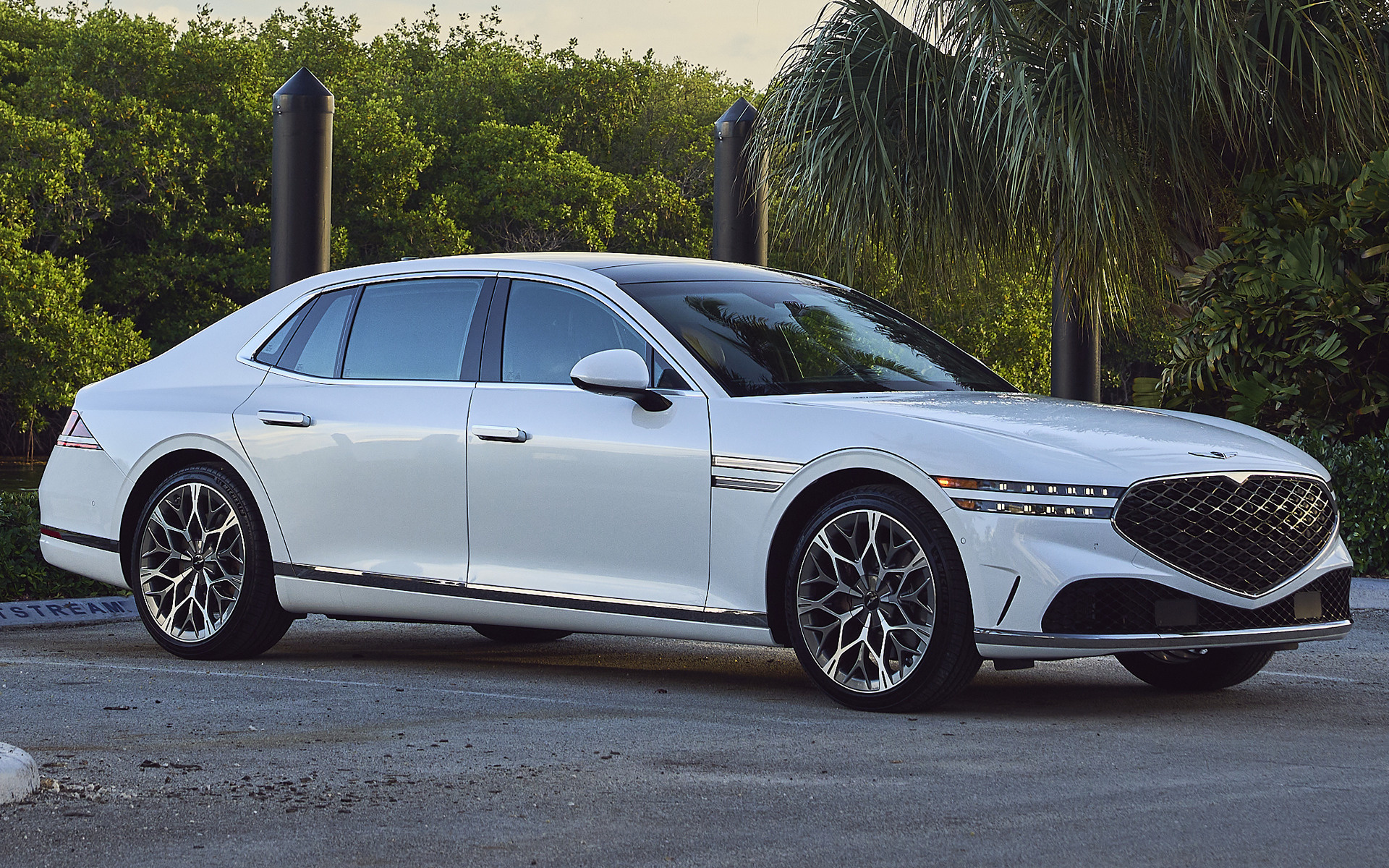The automotive industry is fixated on gas mileage averages, emission efficiency and alternative fuels that may one day make internal combustion engines the outliers. It’s all fine.
Until then, here’s to the open road and full-size luxury sedans represented well by the six-year-old Genesis G90.
Audi, BMW, Lexus, Mercedes-Benz and Volvo are the aging stalwarts with loyalist buyers. Genesis is a confident newcomer, comfortable for its occupants and confident transporting them.
It’s the young automotive endurance athlete, respectful of its European elders but perfectly capable of leading the pack if the opportunity arises.
Offered as the 3.5T and 3.5T E-Supercharger, the 2023 Genesis in both trims is equipped with an eight-speed automatic transmission and all-wheel drive. The base trim V6 has 375 horsepower and 391 lb-ft of torque. The E-Supercharger trim adds an electric supercharger for a power boost of 409 horsepower and 405 lb-ft. The latter replaces the 5.0-liter V8. Acceleration is the more powerful trim is a segment-quick 0-to-60 miles per hour in 5.2 seconds. Gas mileage estimates are 17 miles per gallon in city driving, 24 mpg on the highway.

The first year of the vehicle’s second generation advances the sedan’s quickly ascending reputation. Instead, it’s a stellar alternative to the Audi A8, BMW 7 Series, Lexus LS, Mercedes-Benz S-Class and Volvo S90.
Although it’s been a stand-alone brand for nearly a decade, Genesis is still largely unknown to some car buyers. The Genesis was a former top-end sedan for Hyundai, only outdone by the low-selling and also now-defunct Equus. The latter became Genesis G90 and debuted with the brand’s arrival in 2015 as the top-line spinoff. The GH80 and G890 debuted in the United States in 2016 as 2017 models. The carmaker now has eight models.
With its new generation and a host of new stuff, the Genesis G90 also has new pricing. The starting tally is $13,500 more than the 2022 edition. It moves the fully-stocked choice from a starting MSRP of $88,400 slightly into the six-figure plateau. It may be a dealbreaker for buyers considering a brand switch.

Still, there’s a lot to consider. What defines luxury? The GH90 had plush and well-contoured Nappa leather seats that highlight the interior. Several heating and massage functions are standard. The tilt and telescoping steering wheel has available heating. Furtger comfort and convenience are provided by tri-zone climate control, power sunshades, a UV sanitation chamber for phones, a premium 15-speaker Bang and Olufsen sound system, customizable ambient lighting and fragrances.
For those needing further pampering, Genesis has a “mood curator.” It changes the ambient lighting, climate setting, seat controls and sound levels to match the desired mood. The upgraded e-Supercharged trim adds the massage feature to the second row with adjustable, reclining seats, a 26-speaker audio system and power-closing doors that shut with a button. (Opening the seats requires human interaction after the doors partially open.)
Major automotive safety assessment organizations have lauded Genesis throughout its short tenure. It’s warranted. The driver-assistance suite includes forward collision warning, blind spot warning, adaptive cruise control with stop and go, lane-keeping assistance, a rearview camera and adaptive cruise control. Parking obstruction warning, driver monitoring, automatic high beams, rear cross-traffic warning, and safe exit assist are also in the mix.
Rear passengers have individual climate and seat controls with a small touchscreen interface as well as the option to change radio stations and control the volume.
With all of its impressive amenities, the Genesis road presence throughout its lineup is what has further given Genesis its rising status. The G90 defines the appeal. It’s big, smooth, classy and provides refuge in the automotive jungle.
Article Last Updated: December 8, 2023.
- About the Author
- Latest Posts

A sports, travel and business journalist for more than 45 years, James has written the new car review column The Weekly Driver since 2004.
In addition to this site, James writes a Sunday automotive column for The San Jose Mercury and East Bay Times in Walnut Creek, Calif., and a monthly auto review column for Gulfshore Business, a magazine in Southwest Florida.
An author and contributor to many newspapers, magazines and online publications, James has co-hosted The Weekly Driver Podcast since 2017.
Credit: Source link
